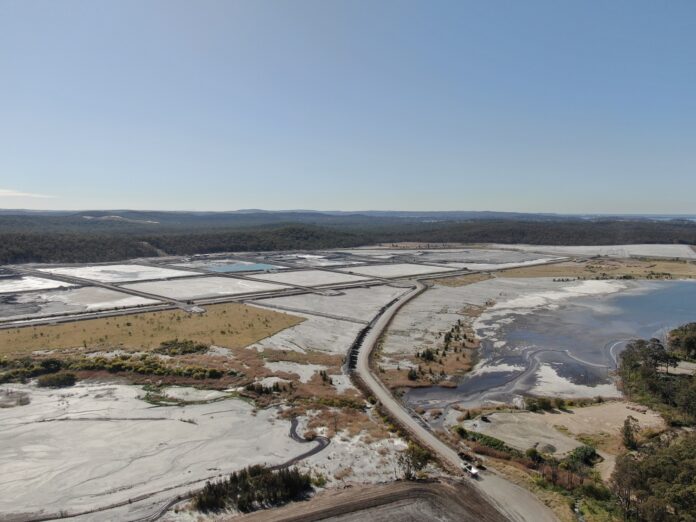A Lake Macquarie community group has welcomed the “overdue” findings on coal-ash impacts in the Hunter and Central Coast.
The final report for the Public Works Committee’s inquiry into Costs for remediation of sites containing coal ash repositories puts forward 16 recommendations acknowledging the wide-ranging pollution effects of coal-ash waste, the frustration of communities regarding ineffective regulation of ash and states strong support for a circular economy to enable coal-ash recycling rates to increase.
Currently, 200 million tonnes of coal-ash are stored in NSW, predominantly in unlined dams which leak toxic heavy metals into the environment, including into Lake Macquarie.
This waste is growing by 3.8 million tonnes each year.
In light of the inquiry outcome, the Coal-ash Community Alliance (CCA) will continue working to fulfill its aims and hold the NSW Government accountable for the implementation of the committee’s endorsements.
The organisation is inviting concerned residents to join an online briefing session about the findings on Thursday 1 April, between 5.30pm and 7pm, in collaboration with the Hunter Community Environment Centre.
“The report contained a spectrum of concerns, including pollution impacts affecting both human and environmental heath, the often-ineffective regulation of ash dumps and the lack of transparency from operators and regulators, the economic and jobs opportunities of recycling coal-ash and last, but not least, the closure of Myuna Bay Sport and Recreation Centre,” CCA research coordinator Dr Ingrid Schraner said.
“Our focus as a community group now has to be firmly on ensuring that factories are established right at the ash dams, which can process new and dumped ash into environmentally safe products.
“This can be a profitable economic proposition that will give construction industries a boost and create large numbers of on-going jobs, right here where the communities have suffered for far too long from the effects of coal-ash stored in unlined dams.”
Wangi Wangi resident, and CCA member, Bruce Derkenne weighed in on the subject, too.
“I feel it’s important to remember why the general public was dragged into this farce in the first place,” he said.
“And, note that the closure of the Myuna Bay Sport and Recreation Centre was condemned by the committee.
“But, we’re disappointed that the re-opening of the facility was not recommended.”
Gary Blaschke OAM gave an emotional testimony at the committee’s first hearing regarding his own cancer diagnosis.
“The health of communities in regions surrounding all ash dams in NSW has simply been swept under the carpet and totally ignored for decades by the authorities,” he said.
“The recommendation that NSW Health immediately undertake an epidemiological assessment of the health of residents near coal ash dams by December 2022 is well overdue.”
The committee’s report also notes that there has been little research on the impacts and long-term health consequences on surrounding communities, despite previous independent reports into high rates of childhood asthma over the past three decades and cancer clusters being officially 6% above the NSW average in the region.
“We can only hope that whoever conducts the epidemiological assessment is independent from the authorities who have let us down for decades,” Mr Blaschke said.
The Hunter Community Environment Centre also hailed the inquiry’s conclusions.
“We see the report as a strong step in the right direction around transparency and improved regulation of coal-ash waste dumps in NSW,” coordinator Jo Lynch said.
“Effective incentives for coal-ash reuse are lacking and we’re looking to the NSW Government to implement policies, such as a levy on coal-ash that will ensure power stations will participate in the circular economy around coal-ash waste.”
The inquiry listed a series of Environmental Protection Licence breaches by NSW power station operators in recent years, which relate to coal-ash, including:
- 2 penalty notices issued to Delta Electricity in 2020 amounting to $30,000;
- 3 penalty notices to Origin Energy in 2017, 2019 and 2020 amounting to $45,000; and
- 9 penalty notices since 2015 to AGL totaling over $90,000.
“These fines have failed to motivate power stations to change ash management,” Ms Lynch said.
“And, in the absence of real incentives, coal-ash will wreak havoc on ecosystems for decades to come.”
The government response to the committee’s report is due within six months.







